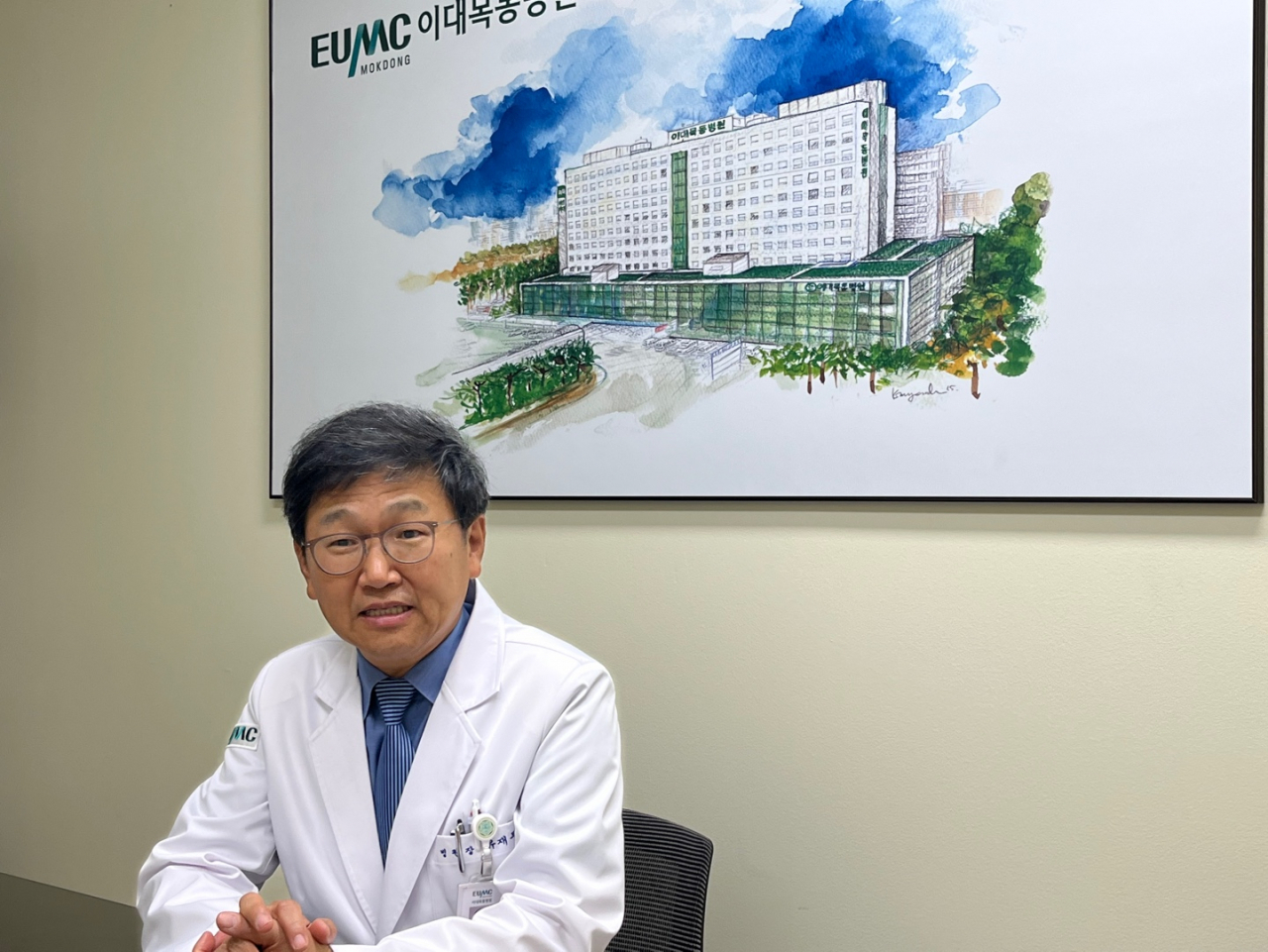[Herald Interview] Hospitals need to turn to sustainable future
Ewha Womans Hospital to adopt sterilized pulverization equipment to reduce carbon footprint of medical waste
By Lee JaeeunPublished : Aug. 10, 2023 - 12:51

Hospitals should not just be institutions treating people, but also important members of the community committed to building a sustainable future, the director of Ewha Womans University Mokdong Hospital said.
“Domestic medical institutions are not very interested in ESG management yet. However, Ewha Womans University Mokdong Hospital has decided to take the lead in ESG management,” Yoo Jae-doo told The Korea Herald.
The hospital aims to minimize emissions during treatment, have a safe working environment for all employees and contribute to the community, he said.
“Specifically, in the future, the hospital will manage energy efficiently by controlling the heating and cooling temperature, minimize the use of disposable products and try to reduce the leftover food in the cafeteria," he said.
"The hospital also plans to increase support for treatment for the underprivileged by offering medical services for free. We are also making efforts to communicate by activating meetings so that employees can understand the management situation of the hospital well."
In particular, the hospital is focusing on medical waste. In order to reduce costs and the institution's carbon footprint, it has recently decided to introduce sterilization and pulverization equipment that allows for the simplified disposal of medical waste.
Currently, most hospitals nationwide move the generated medical waste to special incineration facilities. Since there are only 13 such facilities nationwide, the waste has to be moved long distances for incineration. Carbon is generated from the transportation, and there is the risk of secondary infection from the waste.
But, if sterilized pulverization equipment is installed at a hospital, waste can be pulverized and sterilized on-site, turning it into general waste. After that, the hospital can discard it without moving it to a dedicated facility. This reduces transportation times and costs and also the risk of secondary infections.
“About 800 tons of medical waste are generated annually from this hospital, and during the COVID-19 epidemic, 30 percent more waste was generated. Looking at too much waste, I started looking for ways to treat it more environmentally,” Yoo said.
The hospital will install the medical waste equipment in December, Yoo said.
“Although it takes an initial investment, I made the decision because it is profitable in the long run. I will continue to make efforts to establish Ewha Womans University Mokdong Hospital as a leader in ESG management in Korea.”
Ewha Womans University Mokdong Hospital is one of 45 high-level general hospitals, or tertiary general hospitals, designated by the Ministry of Health and Welfare.
It opened in 1993 and became a representative tertiary hospital in southwestern Seoul with 700 beds and about 400 doctors. It has established itself as a leading Korean medical institution particularly for women's cancers.
Yoo Jae-doo is a professor in the department of orthopedic surgery -- Ed.



















![[Today’s K-pop] Treasure to publish magazine for debut anniversary](http://res.heraldm.com/phpwas/restmb_idxmake.php?idx=642&simg=/content/image/2024/07/26/20240726050551_0.jpg&u=)